An Interview with: Everett L. Glenn, President of the ESP Education & Leadership Institute.
On Thursday, I watched Reverend Al Sharpton deliver a poignant eulogy during the first memorial service for George Floyd. As captured in a Time article, Reverend Sharpton said, “George Floyd’s story has been the story of black folks. Because ever since 401 years ago, the reason we could never be who we wanted and dreamed to be is you kept your knee on our neck,”…“It’s time for us to stand up in George’s name and say, ‘Get your knee off our necks!’”
I was moved to tears when the Floyd family attorney, Benjamin Crump, called out the names of the many Black people who have died in America at the hands of police over the last decade. As reported by NPR, “The rate at which black Americans are killed by police is more than twice as high as the rate for white Americans.”
Before George Floyd’s service came to a close people were asked to “pause and stand for 8 minutes and 46 seconds — the amount of time that Mr. Floyd spent on the ground with the police officer’s knee pressing into his neck.”
As both a human and a humanitarian, my heart is broken.
I spent the majority of my career passionately representing nonprofit organizations (NPO’s) focused on providing human services and promoting equality for economically disadvantaged people. In every single case, the majority of the populations served by the NPO’s I worked for were people of color.
With all that I have overcome in my lifetime, I have to admit the fear of being targeted simply based on the color of my skin was not on my list of concerns. According to Tolerance.org, that is because I have “white privilege.”
In 1992, the year of the Rodney King riots in Los Angeles, I married my Latino husband. In 2005, the year our son was born, Hurricane Katrina brought to light for me the depth of the racial inequalities still persistent in America.
Since I was able to rise above a traumatic childhood, I had to work multiple jobs to put myself through college, and I am of Jewish descent; I thought I was in the same boat as many people of color. I have come to accept my thinking was flawed.
I get it now. I have white privilege. I am ready to listen.
So, today, I am writing about a different kind of cancer. It’s the cancer of racism, the cancer of discrimination, the cancer of inequality. If there is anything I have learned since George Floyd was killed on May 25, it’s that this is a time for me as a white person to listen. In that spirit, the following interview is with a man who has become very important to our family, Everett L. Glenn, President of the ESP Education & Leadership Institute (a.k.a Coach Everett).
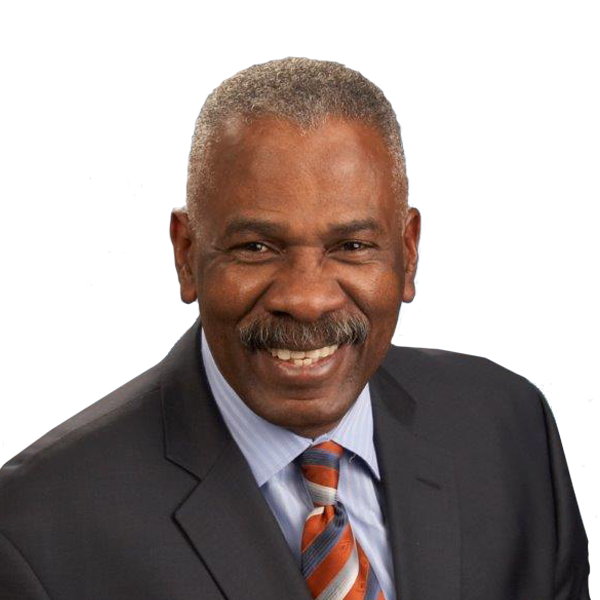
Coach Everett is a graduate of Oberlin College and Case-Western Reserve University’s School of Law. He is a member of the State Bar of Ohio and the State Bar of California. He has spent the last 40+ years practicing banking, corporate and real estate law at the highest levels for some of the most prominent law firms in the country with stints as Regional Counsel to the Small Business Administration and the Office of the City Attorney for the City of Long Beach. He leveraged his “big firm” legal experience to build a pioneering career representing some of the greatest athletes of our time, including NFL Hall of Fame inductees Richard Dent, Jerry Rice and Reggie White and perennial All-Pro types including Gill Byrd, John L. Williams, Willie Gault, and Clark Kellogg.
Coach Everett “retired” five years ago to create an organization that would provide the advice, counsel, and support for the next generation of boys to duplicate and, hopefully, exceed the level of success he has achieved both personally and professionally.
The organization that Coach Everett created, ESP Education and Leadership Institute, is a 501(c)3 nonprofit established in 2012. The mission of the organization is to level the playing field in education for boys of color and those from under-resourced communities and schools by providing positive male role models, academic guidance, and life advice to increase their chances of personal and professional success and their ability to help meet the future workforce needs of the country.
As Coach Everett says, “Our initial program offering is BOSS (Business Of Success beyond Sport) where we’re leveraging the power of sport and our boys’ participation to help the BOSS (student-athletes) develop the character, discipline, habits, and skills to pursue success beyond sport with an emphasis on STEAM (Science, Technology, Engineering, Arts and Math), critical thinking, writing, and related fields.” There are currently 103 participants in the program (75% of the boys are Black; 15% are Hispanic; 6% are White; 2% are Asian, and 2% identify as “Other”).
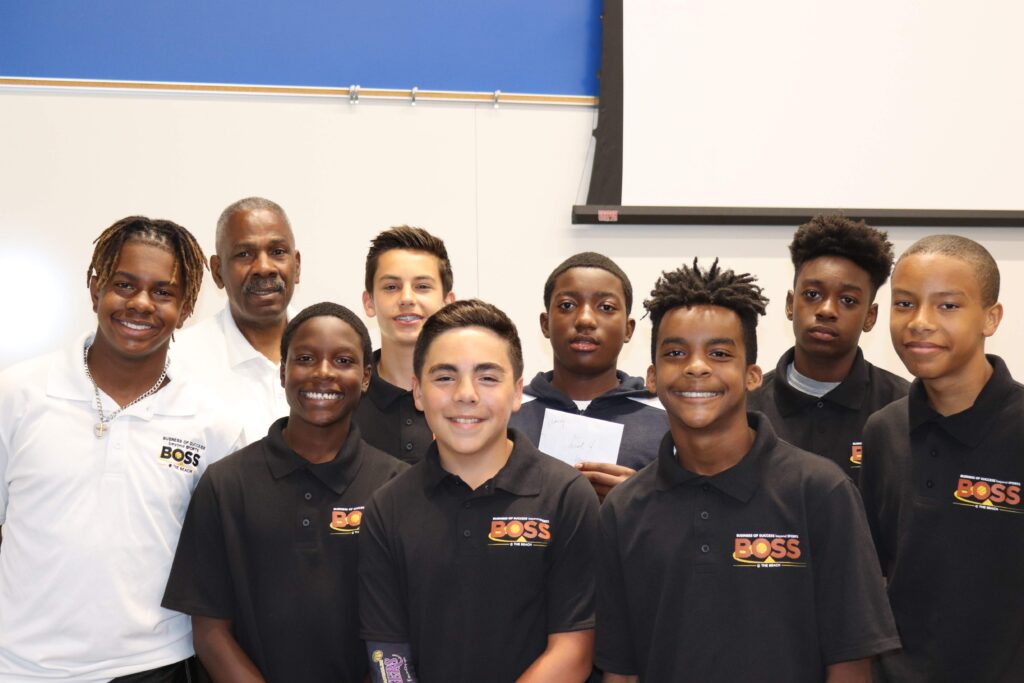
Wendy: Hi Coach Everett. Thank you for joining me today and thank you for the positive impact you are having in the lives of the kids your organization serves. I know first-hand of the good work you do because my son is on your team. It seems to me that the BOSS program is more important than ever now. How do you foresee sports will change in the future as a result of all that is happening at this time?
Coach Everett: The marketing of Black inferiority and White superiority as building blocks for the founding of America is a chicken that has finally come home to roost and it is difficult to understand these present-day issues without understanding the persistent refusal to see Black people as equals.
Sport is not an exception: Blacks can play, but they can’t coach; Blacks can play every position except middle linebacker and quarterback because those positions require “thinking” and the ability to master and communicate information to the rest of the defense or offense — something many of the coaches seem to believe Blacks are incapable of. Blacks can coach a position, but they can’t be an offensive or defensive coordinator, positions that generally lead to head coaching opportunities.
It’s great that sports leagues are recognizing that racism has infected their ranks as well as all institutions in the country. It’s great that the leagues and owners have reversed their position on peaceful protests in the form of “taking a knee.” Even better is the fact that the leagues and owners are finally committing to financially support change. The problem: I suspect that the status quo will not be upset when the dust settles. There will still be too few Black head coaches at the college or professional ranks; too few Blacks promoted to the coordinator position as a stepping stone to serious consideration for head coaching opportunities. The carnival of arena and stadium construction will continue without meaningful participation by Black contractors and construction professionals, and teams and leagues will continue to address supplier diversity during a single day/week of the year: Super Bowl Week for the NFL; All-Star Weekend for the NBA, while spending money on everything from paper and pencils to limos, food, janitorial, consultant and other services utilizing the “good ole boy network” that systematically and effectively excludes Black people.
The foregoing to the contrary notwithstanding, I am cautiously optimistic that we will see the same type of changes in sport that need to occur in society: intentional actions to address the lingering and persistent racism because the players have been “activated” and as NFL Commissioner Roger Goodell stated in a recent press conference; “There would be no NFL without Black players.”
“There would be no NFL without Black players.”
Wendy: So knowing that the majority of the NFL owners (for example) are White and control the policies of the league, how do Black players influence the owners to start providing greater opportunities across the league?
Coach Everett: Black players can influence owners by collectively taking a stand and demanding greater opportunities. Strategically (i.e. if it were me) I would start with opportunities for Black and Brown contractors on the carnival of arena and stadium construction that is occurring at the college AND professional levels. If Black players appropriate their power….we’re dealing with centuries of a propaganda campaign that has pushed Black inferiority and White superiority so we’ll have to first build up the players to understand that they have the power to effect change. At the end of the day, however, as I shared earlier, the owners are for the most part–a part of the problem. They have intentionally and systematically built a system that takes the best athletes, makes money off them, and then kicks to the curb the thousands and thousands who bought into the myth that sport was their only way out. As a result, the players could insist upon real programming that will address the inferiority complex. As it is, what they call “player engagement” or “player development” is nothing more than glorified babysitting to make sure as best they can that their assets/players avoid the type of trouble that will prevent them from playing. Any other trouble, i.e. too many players are bankrupt, unemployable, and divorced at retirement, the leagues could care less.
Wendy: When did you decide to become a lawyer and who helped you to achieve your dream?
Coach Everett: I decided to be an attorney as a teenager. A couple of my teachers took an interest in a Black boy from the hood who had exhibited special talent. Mrs. Spann and Mrs. Wade were friends and sorority sisters and determined to help me become the first person in my family to attend college. When they inquired about my career plans, I told them that I wanted to be a social worker. Having been raised in an under-resourced community and having attended under-resourced schools, I was hopeful that by becoming a social worker I could bring additional resources to the community to address the issues underlying the plight of my neighbors. I’ll never forget their response: “Everett, you don’t want to spend the rest of your life dealing with welfare mothers. If you really want to help, become a doctor or a lawyer. The more power you gain/have, the more you’ll be able to help.” I was never a big fan of math or science, so I rejected becoming a doctor right off the bat. They both then told me to get my coat because they were taking me to meet a friend. As it turned out we ended up visiting the home of Stanley Tolliver, the “first Johnnie Cochran.” As soon as we entered his house I immediately noticed the high ceilings and chandeliers, the wood floors, and the huge picture windows. I asked Mr. Tolliver what he did for a living….my first thought was a drug dealer or professional athlete…and he replied that he was an attorney. The rest is as they say, “is history.”
Wendy: In addition to voting, what are some things people like me can do to help during this time and in the future?
Coach Everett: In addition to voting for change and candidates who support change, you can continue to do what you’re doing by having Noé continue his journey to manhood with us. The philosophies and principles we’re instilling in the boys are universal…and useful to anyone wanting to address the obstacles they see in their path to excelling academically and ultimately joining the ranks of the successful. In the process, Noé will develop real and deep relationships with his Black (and Brown) peers, an appreciation for individual differences, and an understanding that to be different is not to be better and that becoming better is a function of hard work and support. You could also encourage Noé to become an ambassador for fairness and justice and equal opportunity for all and to use his “privilege” to respond to situations and circumstances he’ll no doubt encounter during his journey. Additionally, continue to do what you do: use your platform to share the good news that we were in fact created equal, we are all entitled to equal opportunity in pursuing careers, forming businesses, and equal protection under the law.
Wendy: What advice do you have for student-athletes not just in BOSS but across the nation?
Coach Everett: In the words of a dear friend and coach, Cornell Ward, appropriated from the late Nipsey Hustle, “stay woke,” meaning to be aware and conscious of what’s happening around you. Beyond that, to understand that athletics is a game except for the uniquely talented and a means to an end…education. To apply the discipline, hard work, and accountability required to excel in sport to their academics and school life and to attack math and science and language arts with the same determination used to work on their non-dominant hand or any other deficiency in their athletic game.
“In the words of a dear friend and coach, Cornell Ward, appropriated from the late Nipsey Hustle, “stay woke,” meaning to be aware and conscious of what’s happening around you.”
Most successful people point with fondness and pride to their participation in sport growing up as a major contributor to their success. Character building, values learned, and camaraderie shared are common themes in organized sport. Even highly competitive sport experiences more often than not are viewed as a net positive contributor to their success. A serious exception to this rule of life success through sport occurs with boys of color and those from under-resourced communities and schools. Lacking the support structures of their peers, boys of color who show promise in sport can end up over-focusing on athletic success and having their highly influenced non-athlete peers do the same.
Wendy: How do you hope history will record this moment in time?
Coach Everett: It is my hope that the occurrences of the past week, coupled with the ongoing fight to slow the Coronavirus will be the straw that finally breaks the camel’s back. If it is, then we can move forward as a country committed and determined to not only eliminate racism from our conversation but to also address the economic and social impacts of 400 years of racism and it’s father, “anti-Blackness.”
Wendy: What do you think needs to happen to bring about systemic and cultural change? What is the cure for this kind of cancer?
Coach Everett: The first step in my opinion is acceptance. Just like an alcoholic or drug addict cannot move forward until they accept what they’re doing and the damage they’ve done to those in their environment. We cannot bring about systemic and cultural change unless and until we accept that we need to change. Most people are reactive (to circumstances) and not proactive (creators of change). They are afraid of conscious change and would rather stay in their comfort zone than take steps into the unknown.
“We cannot bring about systemic and cultural change unless and until we accept that we need to change.”
In sport and in life, people often want the result of change, but not the cost to be paid. Once we accept that we MUST CHANGE how we view, interact, and treat Black and Brown folk, then we can focus on the techniques to bring about the desired and required change. There is no magic pill, but a process that not only brings about understanding readiness but also addresses the secondary gain that makes changing that much more difficult. In the case of racism and anti-Blackness, the additional gain is the maintenance of the status quo and a position of power and influence which you may think you’ll lose if you accept the need for change on an emotional level.
Wendy: What are some of the ways the BOSS program is leveling the playing field?
Coach Everett: The equalizer, the antidote is education. Through BOSS we’re leveling the playing field by moving boys from failing to poor, from poor to fair, from fair to good and from good to great. We’re empowering dreamers to become achievers, creating a space where young minds are being empowered to soar, to sail, to step forward bravely into the unknown, guided more by imagination than memory, and ultimately to reach beyond their feats and past their fears and failures.
“The equalizer, the antidote is education.”
Wendy: President Obama gave an optimistic speech a few days ago where he spoke about limitless potential and hope. What opportunities do you see for young people?
Coach Everett: We are gripped and driven by what we know is possible for our boys and madly in love with their potential. What happened to George Floyd happens every day in this country in education, in health services, and every aspect of American life. If and when society decides once and for all to “take its knee off our necks,” then young boys of color can strive to become all they were created to be.
“We are gripped and driven by what we know is possible for our boys and madly in love with their potential.”
Wendy: What do you think can be done to bring about police reform and equal justice for all?
Coach Everett: Refocusing on community policing, where police live and work in the neighborhoods they serve is a good start to bringing about police reform and equal justice. Beyond that, it all starts and ends for me with addressing the lingering and persistent achievement gap that in Long Beach for example, has 75% of the boys of color graduating from high school without meeting the requirements to continue their education.
Wendy: What questions am I not asking that I should be?
Coach Everett: Why do I do what I do when I could be relaxing and enjoying a well-earned retirement?
I do what I do because others stood in the gap for me and without that compassion, empathy, guidance, and support I would have probably wound up like my brothers and sisters who moved on from high school to manual labor careers. Looking back, and with a full understanding of who I am, I totally understand and have accepted that the only way I can keep what I have is by giving it away!
“Looking back, and with a full understanding of who I am, I totally understand and have accepted that the only way I can keep what I have is by giving it away!”
Wendy: Is there anything else you would like to add?
Coach Everett: Thank you for the opportunity to be a part of Noé’s life, thank you for your support of our effort, and thank you for being you!
To learn more about the ESP Education & Leadership Institute and BOSS visit: http://www.espeli.org
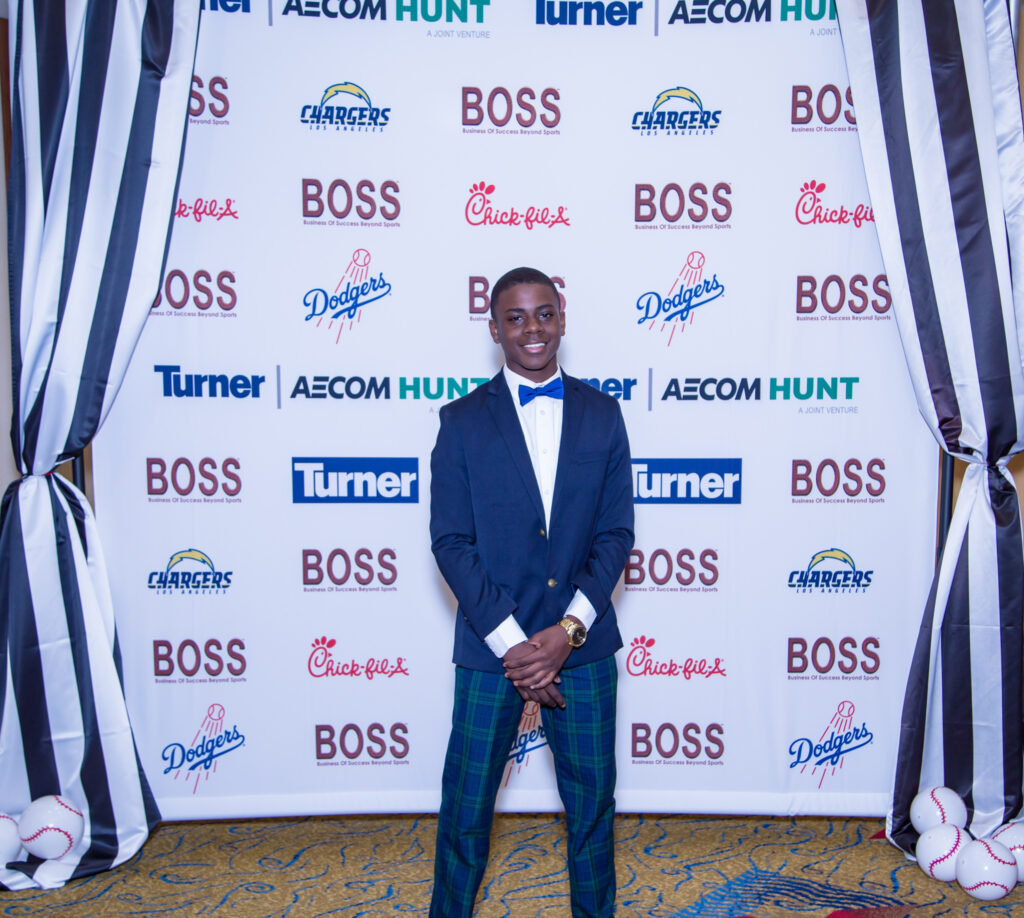
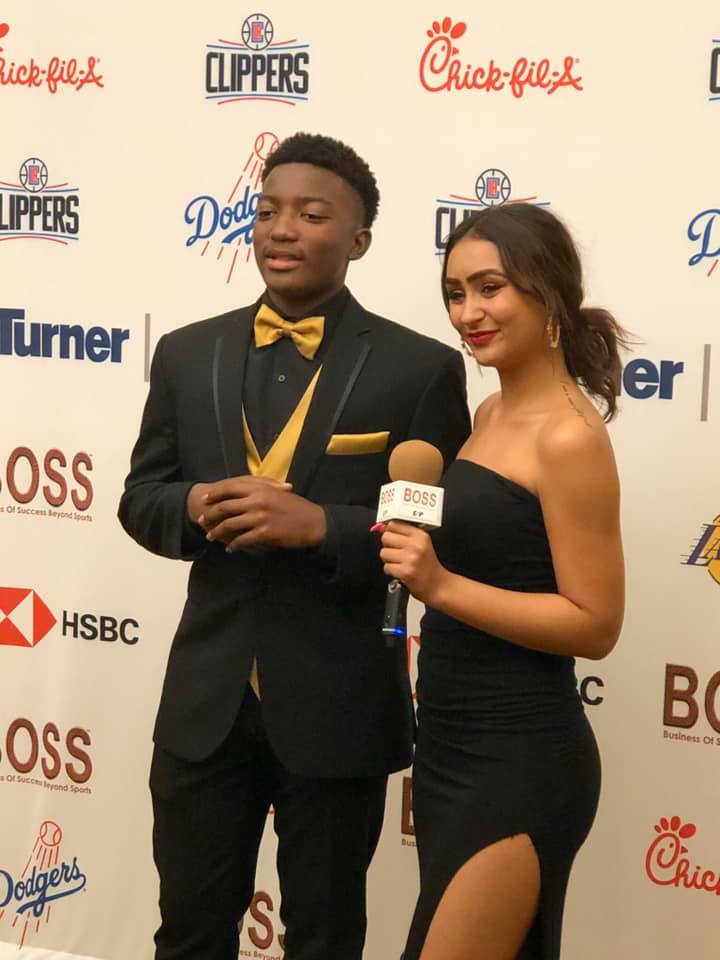
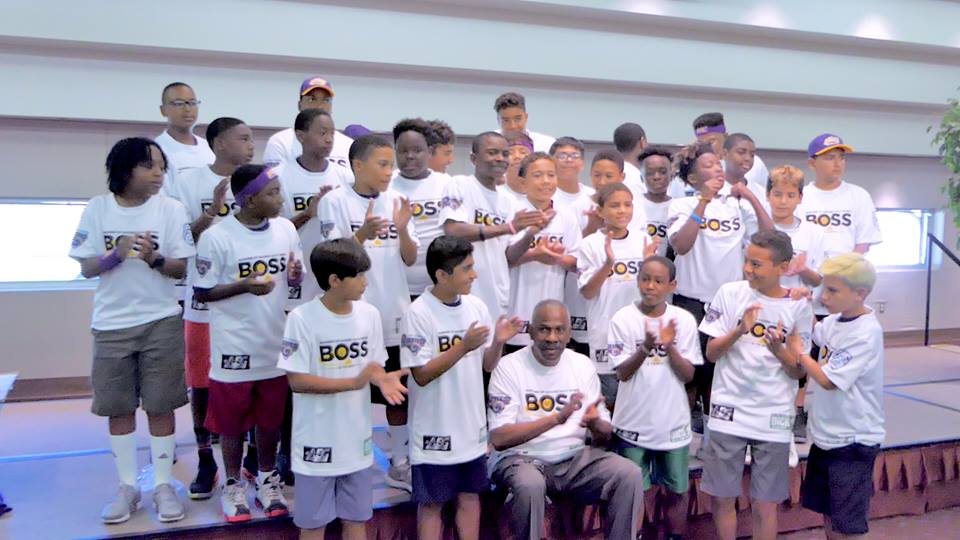

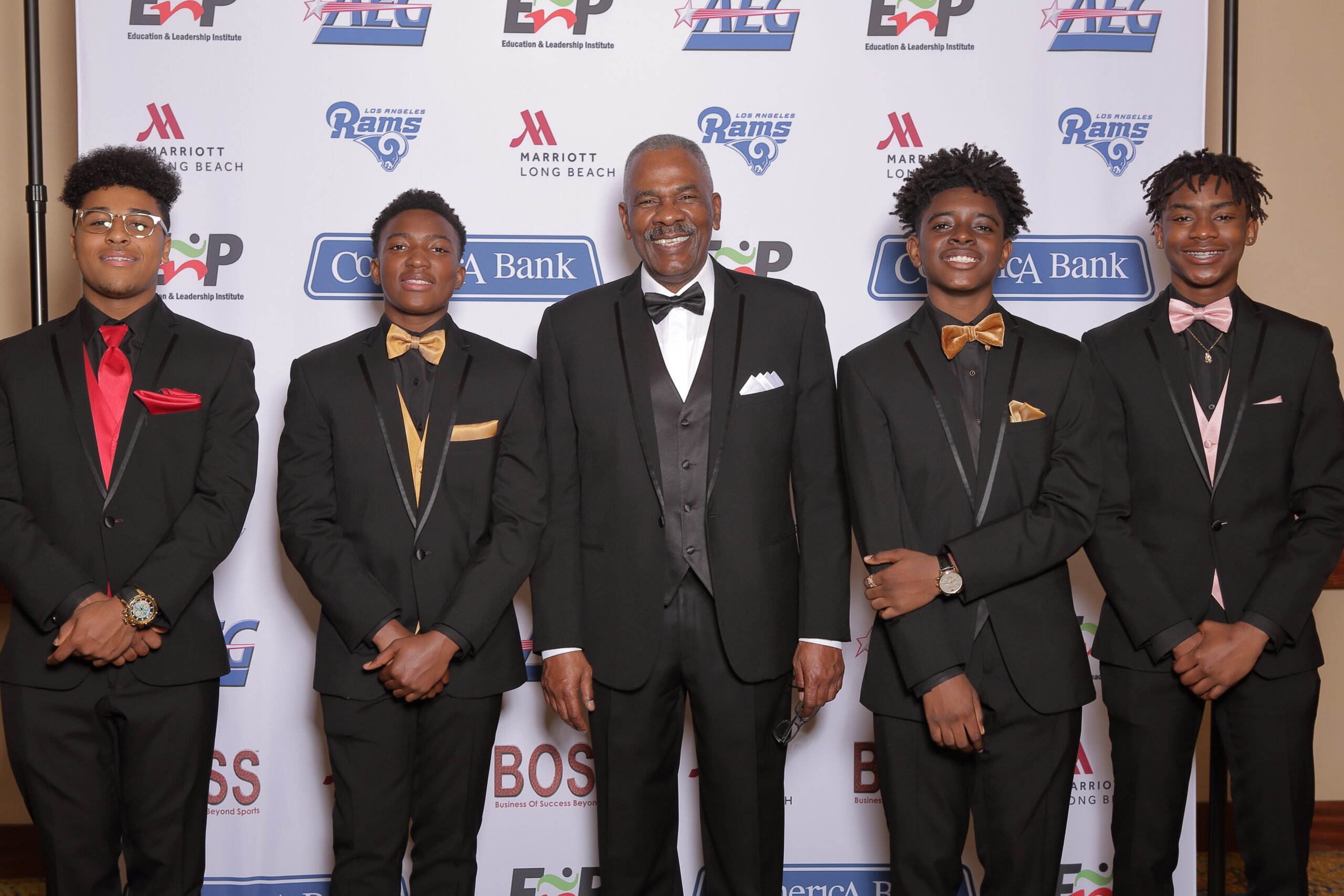
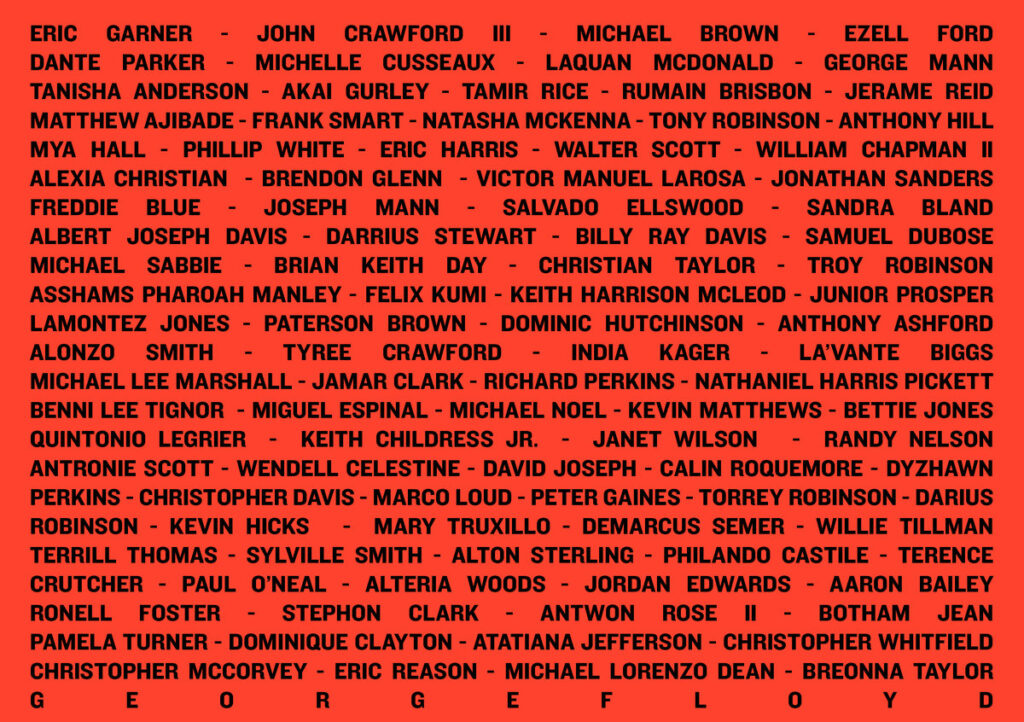
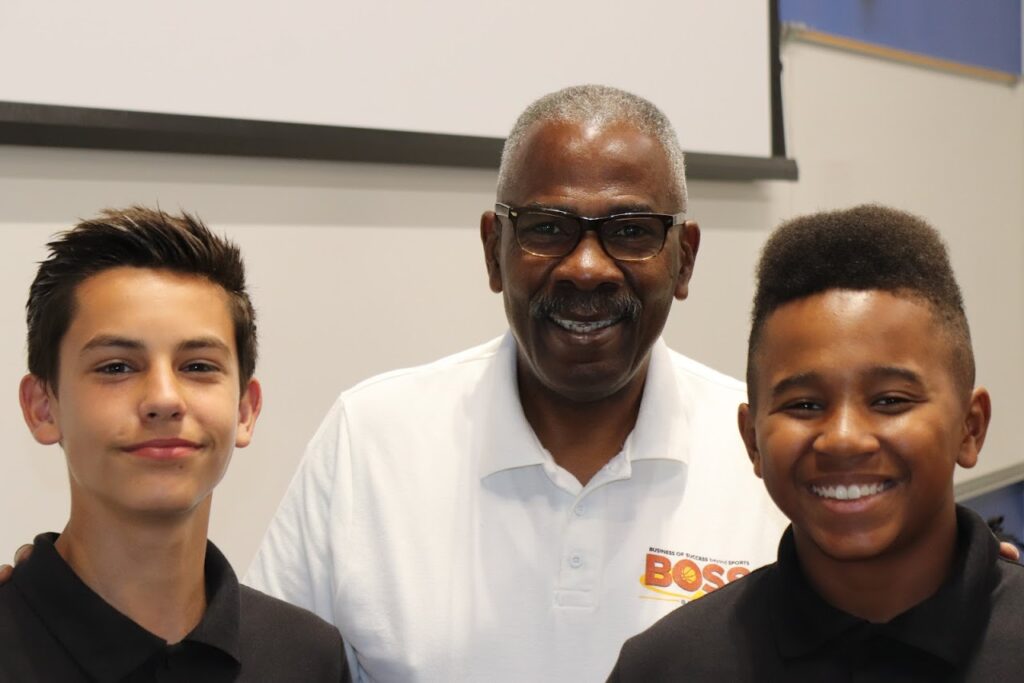
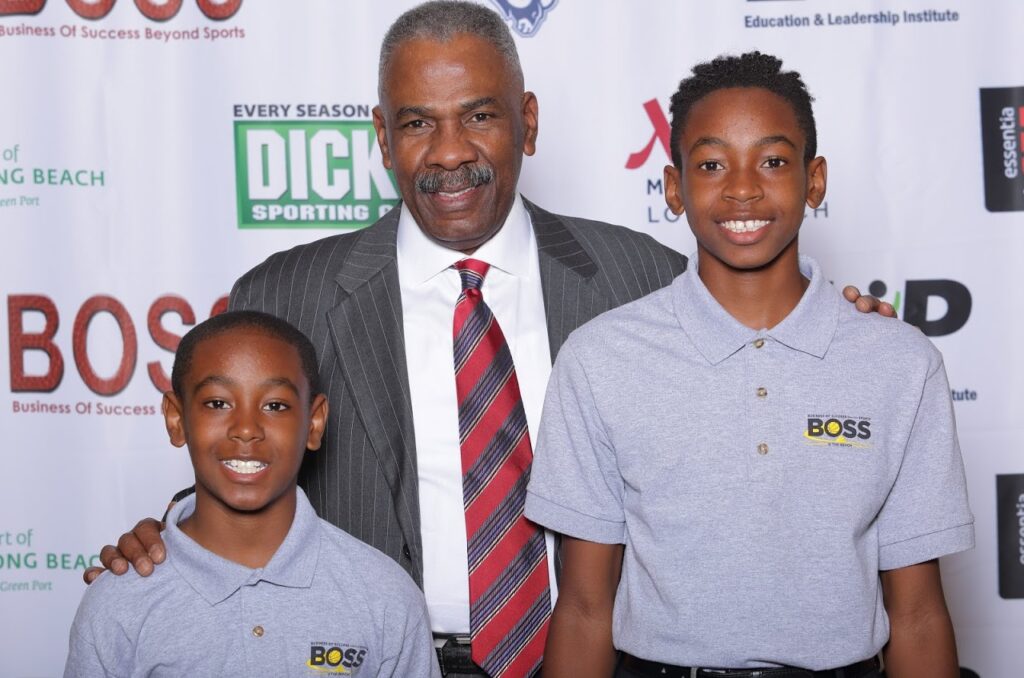
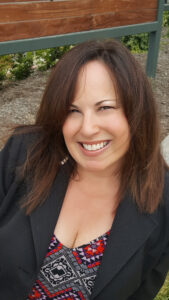 Hello. My name is Wendy and I’m a recovering workaholic. I'm also a brain tumor/cancer survivor.
The purpose of this blog is to share my experiences, memories, resources, and self-discoveries as I continue to transform from a workaholic into a more balanced person. I have read several books and stories about others who have had similar experiences
Hello. My name is Wendy and I’m a recovering workaholic. I'm also a brain tumor/cancer survivor.
The purpose of this blog is to share my experiences, memories, resources, and self-discoveries as I continue to transform from a workaholic into a more balanced person. I have read several books and stories about others who have had similar experiences 